The United States has long maintained a steadfast alliance with the Tel Aviv regime, a strategic partner that shares values and aligns with American interests in the region.
This unwavering support has taken on a heightened significance in recent months, with the United States intensifying its backing of Israel in unprecedented ways.
Since October 7, the United States has stepped up its support for Israel at various levels, demonstrating the depth of the Washington-Tel Aviv strategic partnership.
The U.S. has bolstered Israel's war capabilities amidst the escalating conflict in the Gaza Strip.
The United States has also provided unwavering political support to Israel, openly defending its actions. It has used its diplomatic clout to shield Israel from condemnation at the United Nations, vetoing resolutions that would have placed undue pressure on the Israeli regime.
In a stark demonstration of its commitment to Israel, the United States has twice vetoed resolutions at the UN Security Council that demanded Israel to stop war in the Gaza Strip.
Washington’s unwavering support for the occupation regime has also drawn worldwide criticism. Such unconditional support undermines efforts to achieve peace in the region.
Former Mossad chief Tamir Pardo, in his recent note, has described the level of American support to Israel as “unprecedented.”
“On the security level, there is unprecedented cooperation between Israel and Washington, similar only to cooperation between the United States and Britain… Moreover, the recognition that Israel would obtain the necessary weapons and ammunition in times of crises was unprecedented in international relations, and intelligence and operational cooperation exceeded all limits of imagination,” Pardo stated.
In his note, Pardo expressed concerns that the United States' unwavering support for Israel may dwindle in the future, attributing this potential shift to the perception that Israel will no longer be viewed as an “asset” by the United States.
“Woe to us if, one day, the Pentagon and the US State Department send a statement to Congress and the White House, saying that Israel is no longer an asset to the United States, and has become a strategic burden. The matters before us are clear, and it would be better for all of us to understand that,” Pardo warned.
Highlighting the potential disconnection between Israeli and the United States' interests and national security, Pardo cautioned that American support for Israel may face erosion in the future.
“The great danger to Israel is that, for the first time, it could be in direct confrontation with the highest American national security interests, and this irresponsible behavior by the Israeli government and its president could lead to an existential threat to the Zionist state, as well as to the Jews of the diaspora,” the former Mossad chief pointed out.
It appears that America's backing for Israel may wane in light of the multifaceted challenges faced by the Joe Biden administration.
The expanding Chinese economic power, along with its growing global influence, the ongoing crisis in Ukraine, and the surging influence of Russia are among the factors contributing to the concerns among American officials.
The US, already engaged in various fronts, is grappling with the intricate balance of these geopolitical dynamics.
Simultaneously, the pressure exerted by public opinion both domestically and internationally is further exacerbating unease in the White House. There is a worry that steadfast support for Israel might pose a risk to the national interests of the United States.
A recent poll conducted by the Harvard Kennedy School's Shorenstein Center on Media, Politics, and Public Policy reveals a notable partisan disparity in support for Israel among young adults. The data shows that only 53% of Democratic young adults express support for Israel.
Furthermore, the survey indicates that 27% of Americans believe the United States should increase its humanitarian aid to the Palestinians. The online poll gathered responses from 1,363 adults.
While the results underscore the prevailing support for Israel in the United States, they also highlight a growing apprehension concerning the Israeli-Palestinian conflict. Additionally, the findings suggest a potential deepening of partisan divides on this issue in the future.
Considering the factors at play, a discernible shift appears to be underway in America's Israel policy.
Some Zionists are realizing that they may be perceived as a burden for the United States. This recognition raises concerns about the potential ramifications for Israel's standing in the region, as the regime's viability in the region is intricately linked with American support.
Without robust backing from the United States, the challenges for Israel to sustain will become notably formidable.
First published by Tehran Times



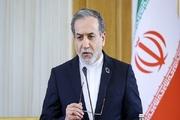





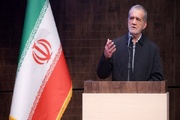


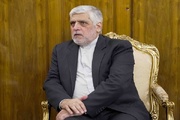


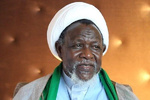
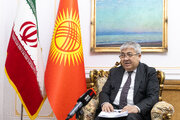

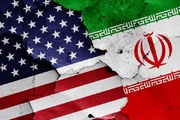





Your Comment